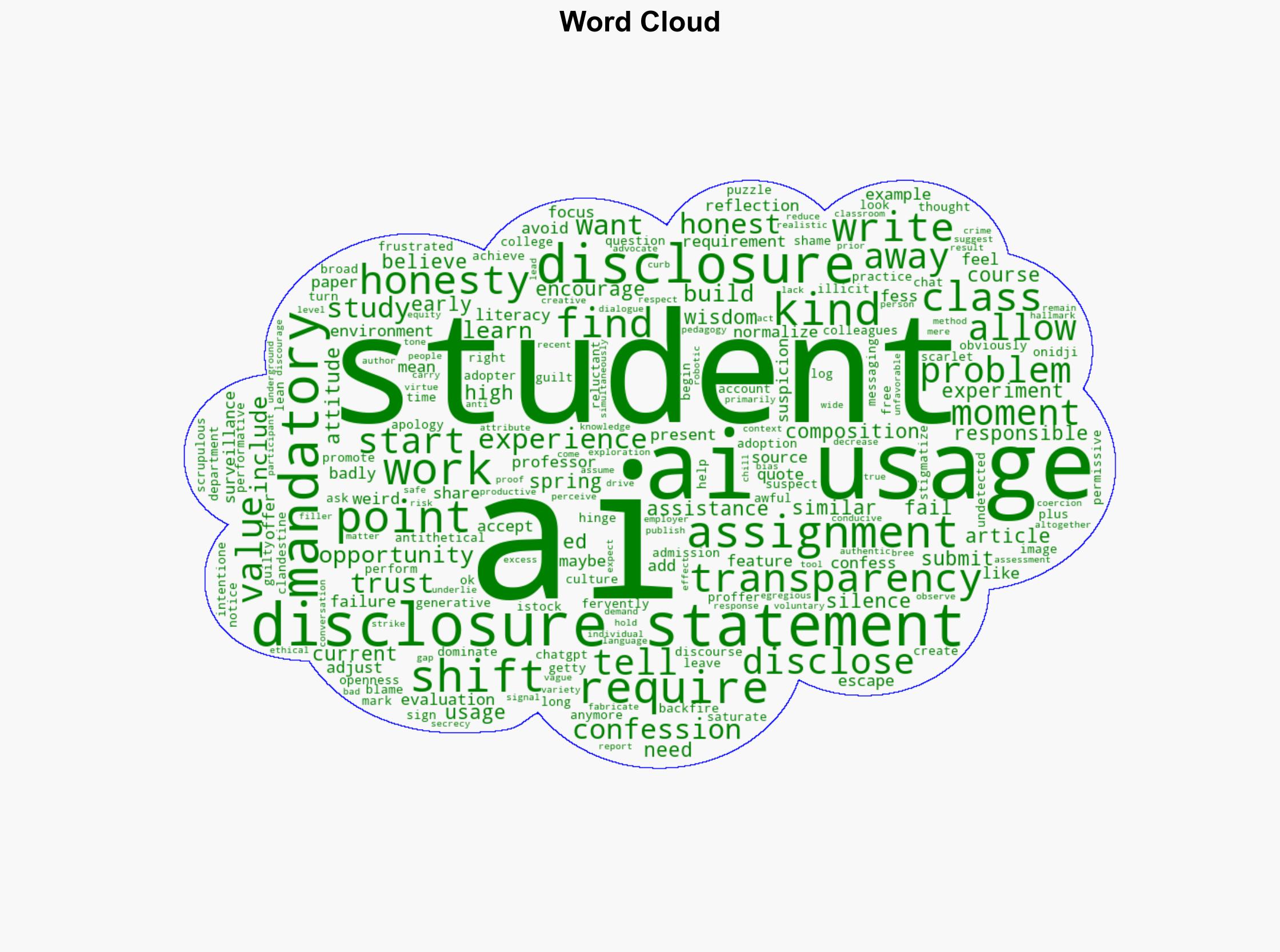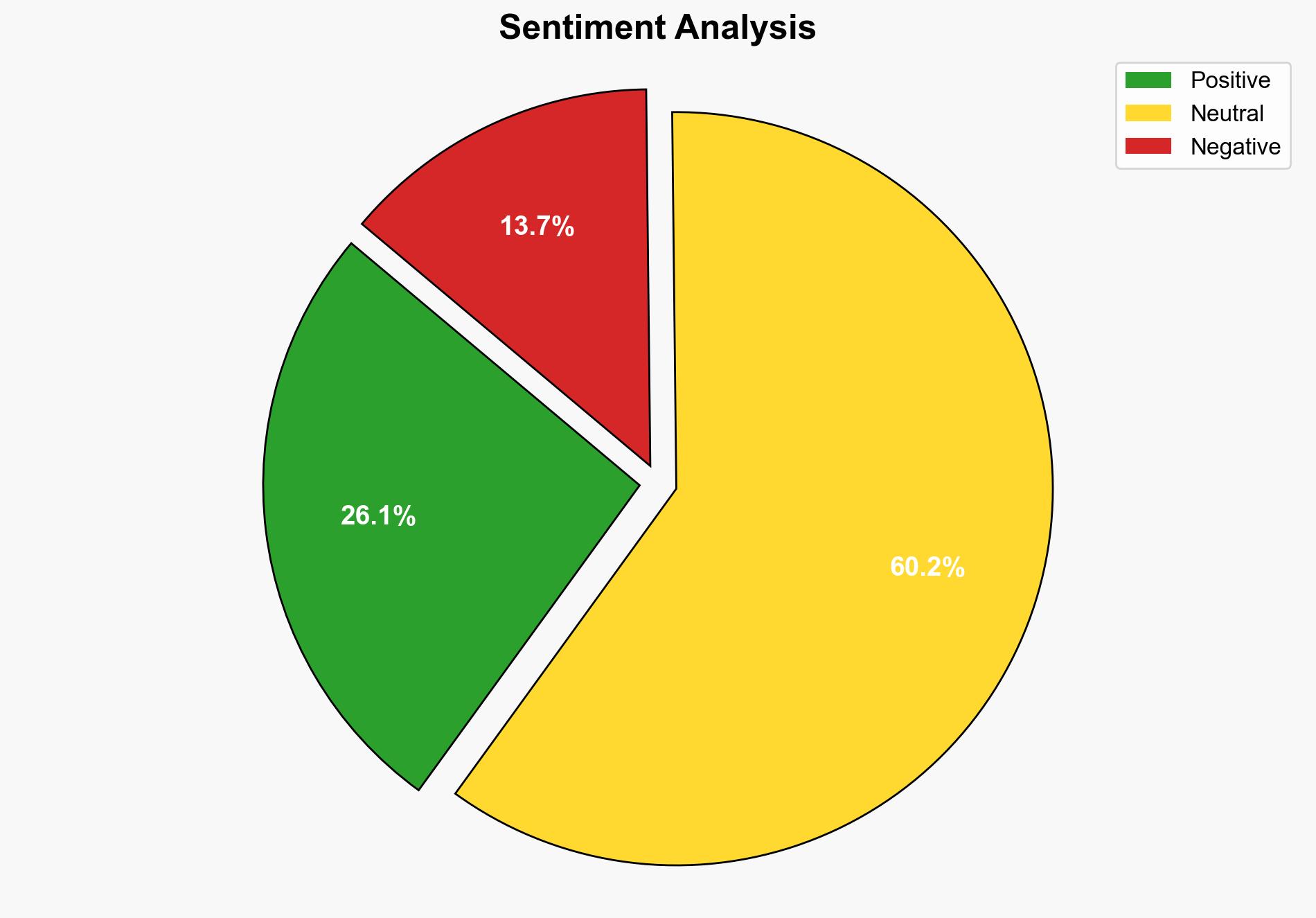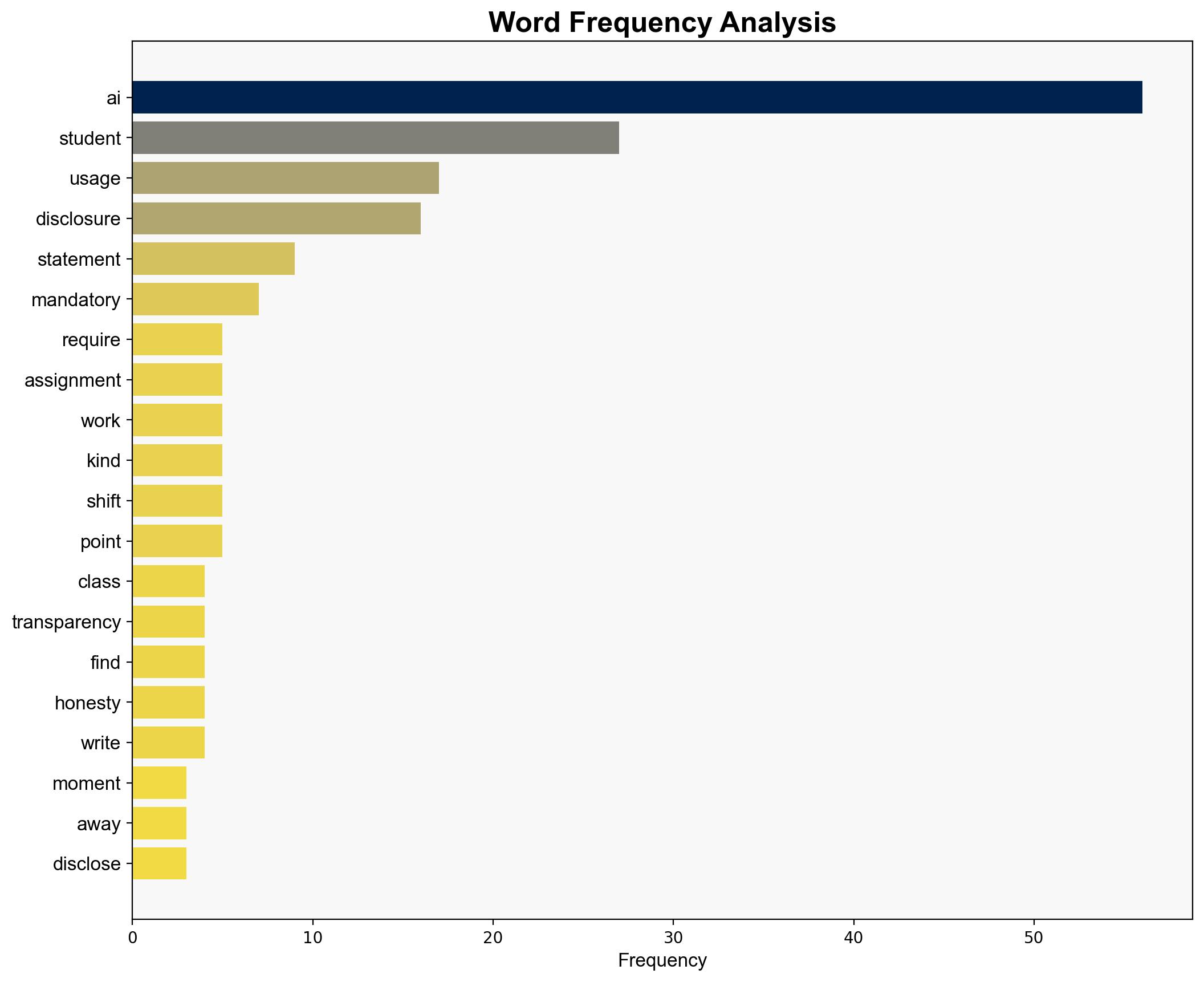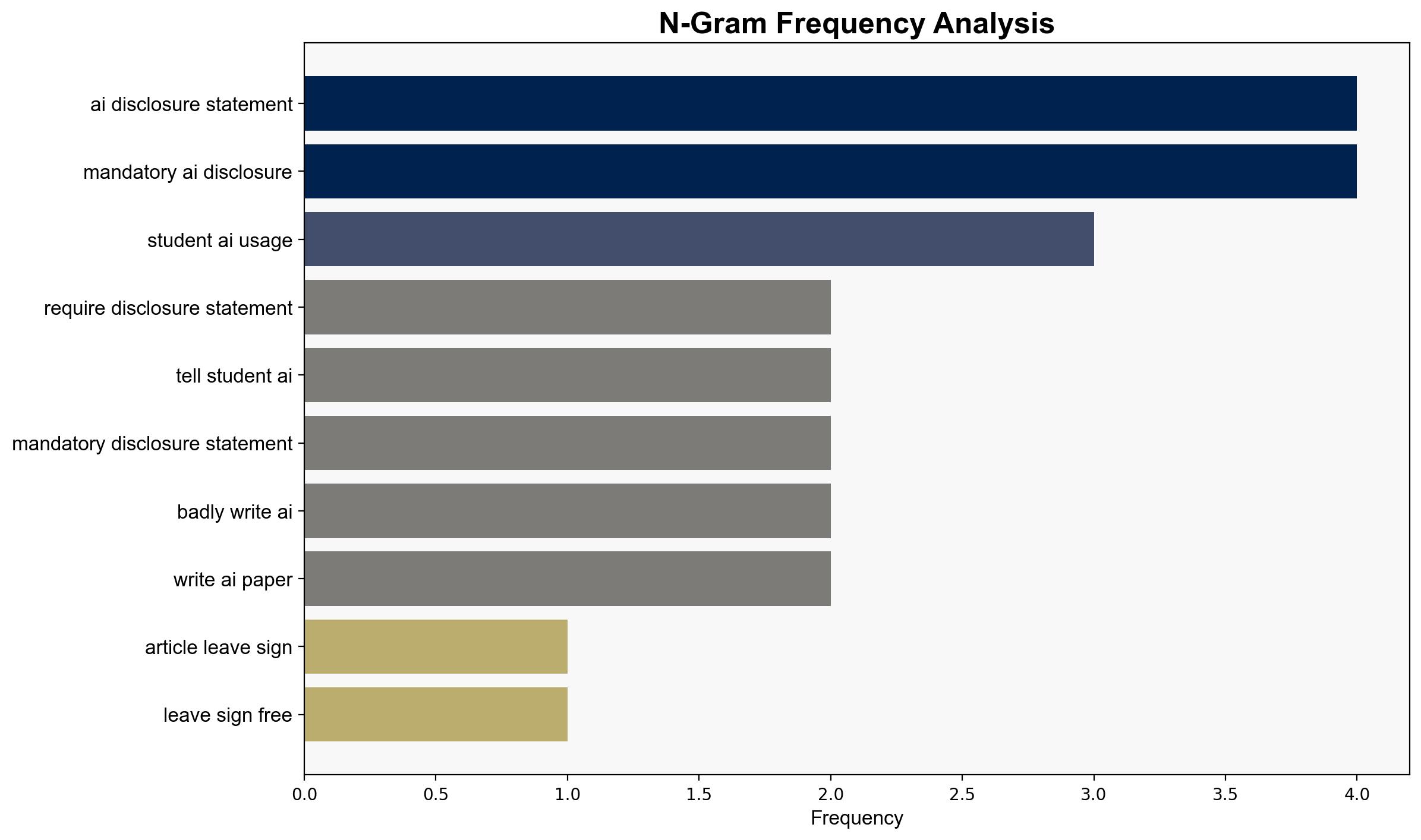The Case Against AI Disclosure Statements – Inside Higher Ed
Published on: 2025-10-28
Intelligence Report: The Case Against AI Disclosure Statements – Inside Higher Ed
1. BLUF (Bottom Line Up Front)
The analysis suggests that mandatory AI disclosure statements in higher education may inadvertently suppress open dialogue and experimentation with AI, potentially driving AI usage underground. The hypothesis that these statements are counterproductive is better supported. Confidence level: Moderate. Recommended action: Reevaluate the necessity of mandatory AI disclosure statements and consider alternative approaches to integrate AI literacy and ethical usage into educational practices.
2. Competing Hypotheses
Hypothesis 1: Mandatory AI disclosure statements promote transparency and ethical AI usage among students, leading to improved academic integrity.
Hypothesis 2: Mandatory AI disclosure statements create a culture of suspicion and shame, discouraging students from openly discussing and experimenting with AI, thus hindering AI literacy and ethical usage.
Using the Analysis of Competing Hypotheses (ACH) technique, Hypothesis 2 is better supported by the evidence. The source text indicates that mandatory disclosures may lead to a culture of secrecy and fear, rather than openness and honesty.
3. Key Assumptions and Red Flags
Assumptions:
– Hypothesis 1 assumes that transparency inherently leads to ethical behavior.
– Hypothesis 2 assumes that mandatory disclosures are perceived negatively by students.
Red Flags:
– Lack of empirical data supporting the effectiveness of mandatory disclosures in improving academic integrity.
– Potential bias in the source text towards a more permissive attitude towards AI usage.
4. Implications and Strategic Risks
If mandatory AI disclosures continue, there is a risk of fostering a clandestine culture around AI usage, which could lead to a lack of preparedness in AI literacy among graduates. This could have broader implications for workforce readiness in AI-driven industries. Conversely, removing such mandates without alternative strategies could lead to misuse of AI in academic settings.
5. Recommendations and Outlook
- Reassess the implementation of mandatory AI disclosure statements and explore voluntary disclosure models that encourage open dialogue.
- Integrate AI literacy and ethical usage into the curriculum to prepare students for future challenges.
- Best-case scenario: Voluntary disclosures lead to increased AI literacy and ethical usage. Worst-case scenario: Continued mandatory disclosures suppress AI dialogue. Most likely scenario: A mixed approach leads to gradual improvement in AI literacy.
6. Key Individuals and Entities
No specific individuals are mentioned in the source text. The focus is on the broader educational community and its approach to AI usage.
7. Thematic Tags
AI ethics, educational policy, academic integrity, technology integration





